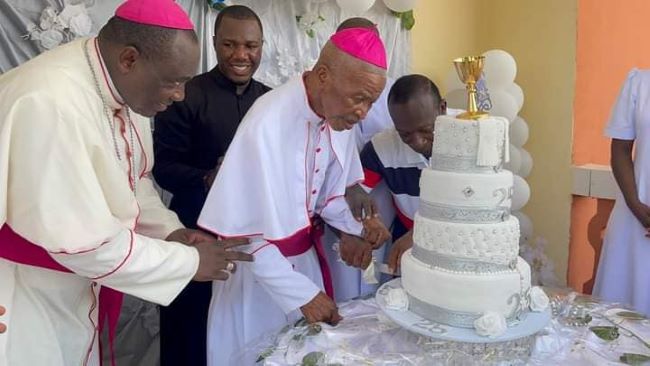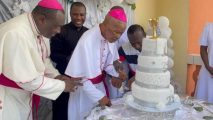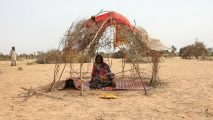Categories
Archives
- April 2024
- March 2024
- February 2024
- January 2024
- December 2023
- November 2023
- October 2023
- September 2023
- August 2023
- July 2023
- June 2023
- May 2023
- April 2023
- March 2023
- February 2023
- January 2023
- December 2022
- November 2022
- October 2022
- September 2022
- August 2022
- July 2022
- June 2022
- May 2022
- April 2022
- March 2022
- February 2022
- January 2022
- December 2021
- November 2021
- October 2021
- September 2021
- August 2021
- July 2021
- June 2021
- May 2021
- April 2021
- March 2021
- February 2021
- January 2021
- December 2020
- November 2020
- October 2020
- September 2020
- August 2020
- July 2020
- June 2020
- May 2020
- April 2020
- March 2020
- February 2020
- January 2020
- December 2019
- November 2019
- October 2019
- September 2019
- August 2019
- July 2019
- June 2019
- May 2019
- April 2019
- March 2019
- February 2019
- January 2019
- December 2018
- November 2018
- October 2018
- September 2018
- August 2018
- July 2018
- June 2018
- May 2018
- April 2018
- March 2018
- February 2018
- January 2018
- December 2017
- November 2017
- October 2017
- September 2017
- August 2017
- July 2017
- June 2017
- May 2017
- April 2017
- March 2017
- February 2017
- January 2017
- December 2016
- November 2016
- October 2016
- September 2016
- August 2016
- July 2016
- June 2016
Featured
 Bishop Francis T. Lysinge @ 25!
Bishop Francis T. Lysinge @ 25!  Understanding the Biya Francophone regime’s support for the Israeli genocide in Gaza
Understanding the Biya Francophone regime’s support for the Israeli genocide in Gaza  Poverty under Biya: Cameroonians embrace Chinese language for brighter futures
Poverty under Biya: Cameroonians embrace Chinese language for brighter futures  Cameroon is broken: Who can fix it?
Cameroon is broken: Who can fix it?  Ethiopia: U.S Senator Cardin Statement on the Killing of Bate Urgessa
Ethiopia: U.S Senator Cardin Statement on the Killing of Bate Urgessa
Most Commented Posts
 4 Anglophone detainees killed in Yaounde
4 Anglophone detainees killed in Yaounde
19 comments Chantal Biya says she will return to Cameroon if General Ivo Yenwo, Martin Belinga Eboutou and Ferdinand Ngoh Ngoh are sacked
Chantal Biya says she will return to Cameroon if General Ivo Yenwo, Martin Belinga Eboutou and Ferdinand Ngoh Ngoh are sacked
13 comments Anglophone Nationalism: Barrister Eyambe says “hidden plans are at work”
Anglophone Nationalism: Barrister Eyambe says “hidden plans are at work”
12 comments The Anglophone Problem – When Facts don’t Lie
The Anglophone Problem – When Facts don’t Lie
12 comments Largest wave of arrest by BIR in Bamenda
Largest wave of arrest by BIR in Bamenda
10 comments
Latest Tweets
Featured
-

King Charles III to resume public duties next week following cancer treatment
-

Indomitable Lions Crisis: FIFA refuses to acknowledge Marc Brys
-

Bishop Francis T. Lysinge @ 25!
-

10 Million Cameroonians lived on less than $1.80 per day
-

Football: Xavi to remain as Barcelona coach
-

Biya regime delays bond sale amid regional market strain
-

Historic agreement between Nigeria and Cameroon to tackle wildlife crime
© Cameroon Concord News 2024
8, January 2022
Southern Cameroons Crisis: Biya regime and the IG have a chance for a ceasefire as AFCON kicks-off 0
With one billion people around the world expected to watch as the African Cup of Nations (CAN) kicks off in Cameroon on 9 January, a spotlight will shine on the country’s five-year-old conflict between the government and Anglophone separatists.
Matches around the country will include eight games in Limbe and Buea, cities in the English-speaking South West region, and Anglophone militias have announced plans to disrupt the Cup, hoping to showcase their grievances. The government has responded with severe restrictions upon movement and association in the Anglophone regions.
This is a lose-lose strategy: separatist attacks during the month-long tournament may diminish the sympathy that Anglophone Cameroonians enjoy in Africa and elsewhere, and the government’s heavy-handed measures could produce popular backlash and escalate the conflict.
A different approach
Instead, both parties should pursue a dramatically different approach: embrace sports diplomacy and cease hostilities for the Cup’s duration. With outside diplomatic support, such a truce could be the first step in rebuilding trust and moving toward talks after years of bloodshed.
Even without the Anglophone militias’ threats, guaranteeing security for the tournament would pose significant challenges for Cameroon. Nine of the country’s ten regions are mired in humanitarian crisis as a result of violent conflict. Jihadist insurgency and climate change-fuelled inter-communal strife between herders and fishermen have destabilised the north, while rebels from the Central African Republic have crossed into the east.
The country’s political situation is also tense, with five senior officials from Francophone opposition leader Maurice Kamto’s party sentenced to seven-year jail terms for holding demonstrations against the president, Paul Biya, in September 2020.
Anglophone conflict ‘poses most serious security problem’
The conflict in the Anglophone regions poses the most serious security problem though. Disturbances began in October 2016, when lawyers and teachers mounted demonstrations calling for a two-state federation to preserve the Anglophone legal and educational systems.
These degenerated into armed conflict following the government’s violent repression, as Anglophones set up separatist militias. Since then, the fighting has killed more than 6,000 people and displaced about one million, ushering in one of the world’s most neglected humanitarian crises amid a deteriorating human rights situation.
Crisis Group and others have repeatedly advocated for talks that might yield a political solution to the conflict. But thus far the government has been unwilling to negotiate in good faith.
It ignored a Swiss dialogue initiative in 2019 that had assembled a dozen separatist groups calling for talks, instead organising its own putative National Dialogue in October of that year. That effort failed to include separatist participation, virtually ensuring it would flop.
As a conciliatory gesture, the government then unilaterally established a special status for the regions, under which it created two regional assemblies with limited powers. This measure fell short of what Anglophones had been demanding and predictably failed to reduce the conflict’s intensity.
Stalemate on both sides
The Anglophone conflict’s escalation in 2021 has not led to a change in either side’s position. Separatists believe they are gaining momentum despite internal divides. The government, for its part, is preparing for a long war, purchasing new military supplies. With neither side clearly ascendant and both reluctant to engage in talks, the conflict has reached a stalemate.
While it would be inconsistent with the separatists’ modus operandi for them to attack venues where the matches are being played, violence could intrude in other ways.
Since 2018, separatist militias have often sought to disrupt sports events in the Anglophone regions:
In January 2021, during another football tournament, the African Nations Championship, militias detonated an explosive device in Limbe, wounding three policemen.
On 21 December, as President Biya met in the capital Yaoundé with Patrick Motsepe, president of the Confederation of African Football, separatist fighters attacked a police checkpoint in Kumba, in the South West, reportedly killing one officer.
In December, clashes between separatist militias and government forces hit Bamenda, Cameroon’s third-largest city.
Tellingly, when a man dressed as the Africa Cup costumed mascot, Mola the lion, toured the city on 16 December, he wore a bulletproof vest and was surrounded by a heavily armed military escort.
‘Propitious moment to seek a truce’
Despite the challenges, the tournament is a propitious moment to seek a truce, under which the parties would pledge to cease hostilities for at least the duration of the Cup and possibly even create the foundation for a new peacemaking effort.
A major diplomatic push by national and international officials will be crucial in the coming days. International actors will need to urgently press the government to reinvigorate the direct channels it developed in 2020 with influential separatist leaders in jail, perhaps underscoring how much it is in Yaoundé’s interests for the games to come off without a hitch. In parallel, Swiss officials could seek to build support for a truce among separatist leaders living overseas and remobilise UN, U.S., British and Canadian backing for their dialogue initiative.
The benefits of even a brief cessation of hostilities would be significant. It would grant the tournament protection while affording humanitarian agencies a chance to deliver critical aid to the thousands endangered by the fighting. It could also help lay the foundation for much-needed peace negotiations and invite near-term measures by the government that might help bring separatists to the table, like the release of Anglophone prisoners being held for non-violent crimes.
Ideally, the separatists would send positive signals of their own by reiterating their commitment to a political solution and making clear their interest in talks.
Whether any of this progress is achievable right now is unclear. Yet the forthcoming tournament presents a rare and welcome opportunity for bringing some creative sports diplomacy to bear on this often overlooked war.
Culled from The Africa Report